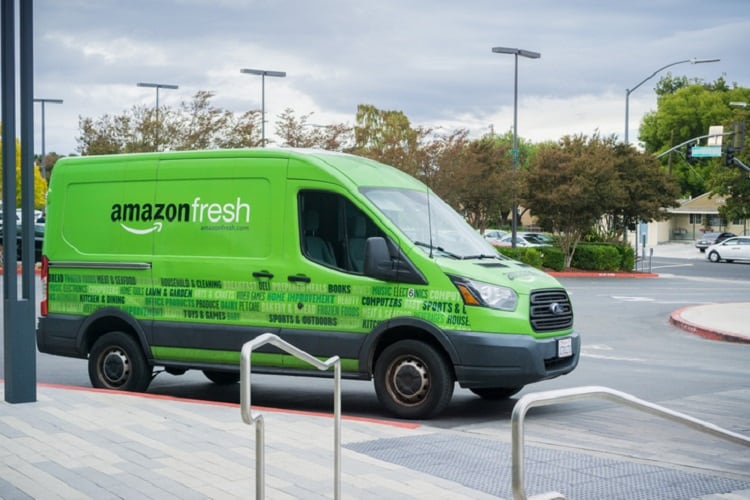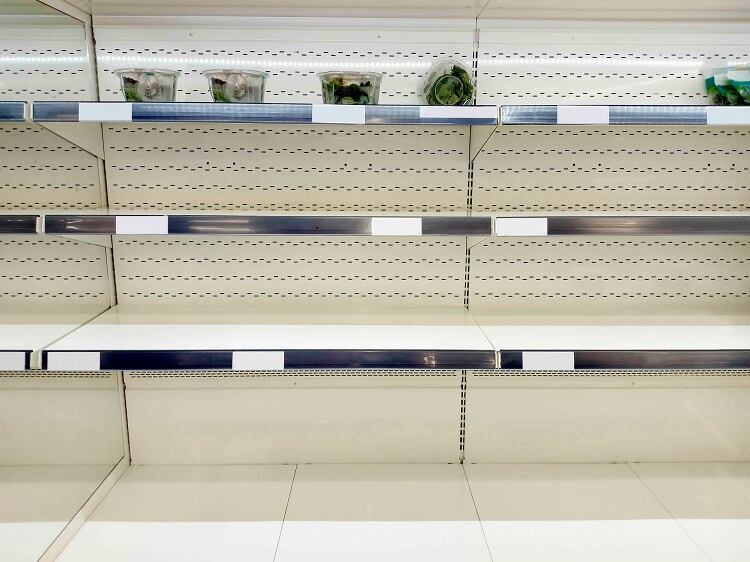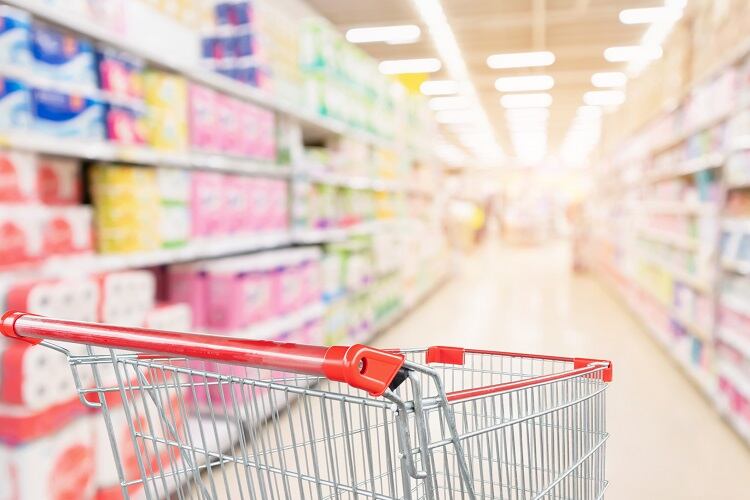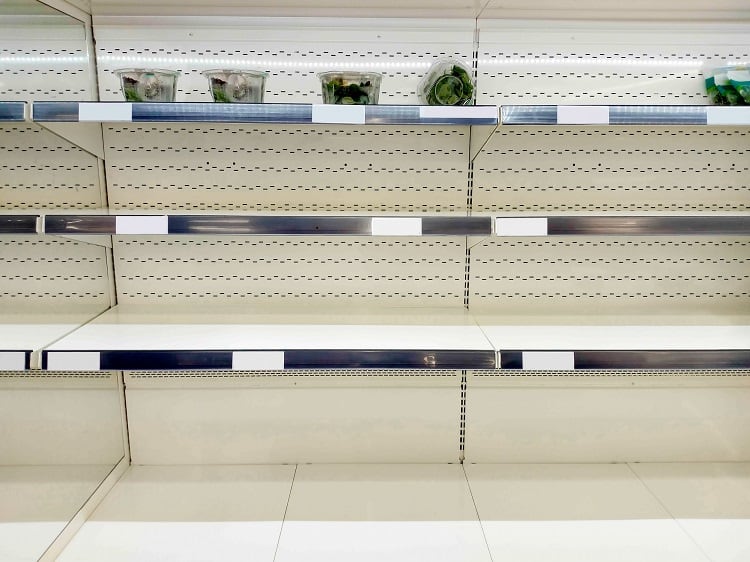The new coronavirus, or COVID-19, outbreak has placed unprecedented strain on supermarket retailers around the globe.
In the UK, images of raided supermarket shelves are making front-page news, as staple food items such as pasta, rice, and canned goods are prioritised on shopping lists.
Retailers were bracing themselves for a spike in demand as early as late February, according to Mintel. The market insight firm’s latest data reveals that even before the UK ramped up its social isolation guidance, some 10% of shoppers had stockpiled goods.
“While this is a minority of consumers, such as spike is enough to place significant strain on retailers’ stock and logistic networks and of course causes unavailability,” Associate Director of Retail Research at Mintel, Nick Carroll, told FoodNavigator.
So what does coronavirus mean for the retail sector? We asked Carroll how supermarkets and independents are responding to this ‘significant strain’, and what best practices can they put in place for the coming months.
Chains and independents equally ‘struggling’ to fulfil demand
As the coronavirus outbreak spreads across western Europe, so too have images of depleted retail stores, via online and social media.
According to Carroll, these photographs have ‘increased interest in the issue’ and encouraged similar behaviour among consumers. It has become a ‘self-fulfilling prophecy’, he told this publication.
“The out-of-stock items were initially confined to a select few categories; cleaning products and toilet rolls were the first to experience the impact, but as the stockpiling trend has grown, other categories have faced pressure – with packaged bread and chicken currently high in demand.”
While supermarket chains’ bare shelves have received the most attention on social media to date, Mintel’s retail expert explained the current impact has been indiscriminate.
Both large chain and local businesses are equally struggling to fulfil the heightened demand, we were told. “However, for smaller retailers the impact of a rapid growth in demand is far greater, for many supply networks are not as developed and deliveries of new stock are not as frequent.
“This has been further magnified by consumers, either by choice or under advice, staying closer to home and shopping more locally.”
Supermarket delivery spikes

Whether due to self-isolation or quarantine, consumers are increasingly opting for online home delivery.
Last week, in an effort to help supermarket retailers meet boosted demand for such services, the Government announced plans to temporarily relax delivery drivers’ hours.
This means that drivers are able to work for ‘slightly longer’ periods and offer additional delivery slots. It will also provide extra capacity if drivers are unwell.
“We’re relaxing the GB drivers’ hours rules so that supermarkets can complete more home deliveries – which is especially important for vulnerable people at this time,” noted Transport Secretary Grant Shapps at the time.
And last night (23 March), in the Prime Minister’s address to the nation, Boris Johnson said: “You should not be going shopping except for essentials like food and medicine – and you should do this as little as you can. And use food delivery services where you can.”
For Mintel’s Carroll, online delivery has also seen demand ‘spike’ because it is ‘a channel that best supports big-basked demand’. “All have seen demand skyrocket, to the point now where Ocado is forced to make consumers queue and/or take its site down for periods as it processes demand."
The retailers’ response
The UK’s major supermarket retailers have been responding to heightened demand in similar ways, such as enforcing limits of select lines. This ‘required step’ was taken ‘arguably a little late’, according to Carroll.
Tesco, for example, has introduced a storewide restriction of three items per customer on every product line. The retailer has also removed all multi-buy promotions.
At Sainsbury’s customers are similarly able to buy a maximum of three of any grocery product, yet a maximum of just two of the most popular products, including toilet paper, soap and UHT milk.
“We have enough food coming into the system, but are limiting sales so that it stays on shelves for longer and can be bought by larger numbers of customers,” said chief executive Mike Coupe.

By enforcing such limits, supermarkets hope to ensure supply throughout the crisis, Mintel’s Carroll explained.
“In the same way scientific experts have talked about the need to ‘flatten the curve’, regarding the outbreak, this is what retailers have to do in terms of demand, to ensure supply chains have enough time to react and crucially all can have access to the products they need.”
This needs to be supported by a sustained campaign of calming shoppers, he continued.
“Clearly the continued ‘stockpiling’ is coming from a lack of trust that products will be available long-term, and retailers need to reinforce the point that there is enough to support the nation in this difficult time.” – Nick Carroll, Associate Director of Retail Research at Mintel
Last week also saw retailers forced to react to the differing stages of isolation experienced by the UK population. While as of today (24 March) all UK residents are required to stay at home, previously self-isolation guidance was largely targeting ageing citizens.
“With the impact of the virus stronger on the over 70s, and the advice for them to sty at home, there has been a need for dedicated shopping hours and priority delivery slots for this group,” Carroll told this publication.
At Sainsbury’s, 8am-9am every Monday, Wednesday and Friday has been reserved for elderly customers. Priority shopping has also been made available to NHS staff and social care workers.
“This is only the first week of the dedicated shopping hours and there are clearly teething problems,” said the retail expert, “in particular, the

long queues some are experiencing which is problematic as it gathers those at risk in one place for an extended period.
“However, the approach – treating customers with different risk in different manners – is correct and will be finessed as we move forward.”
Next steps: Contact-free shopping? Building consumer trust?
To date, the vast majority of the impact to the sector has been ‘preparation driven’, yet as of midnight last night – when Prime Minister Johnson said everyone must self-isolate – there will need to be a ‘new thinking’ about how to ensure everyone has access to food and drink, according to Carroll.
While online will play its part, currently it accounts for just 7% of spending in the sector. Therefore, it will need ‘massive investment’ and ‘manpower’, he continued, hence the requirement drive from the major players to fulfil even a quarter of demand in the sector via delivery.
“Stores will of course have to play their part. As we saw in China, the introduction of ‘contact-free shopping will be important, potentially to the extremes we saw in China where orders were left in dedicated ‘pick up’ zones outside stores.”
The retail expert also suggested that moving forward, retailers’ messaging will have to evolve. “As concern grows, there will be a need for retailers to reassure shoppers that staff are fit and healthy.”





